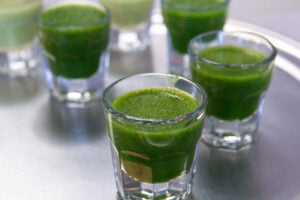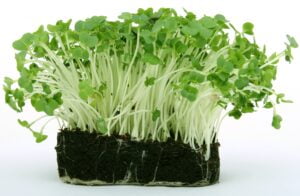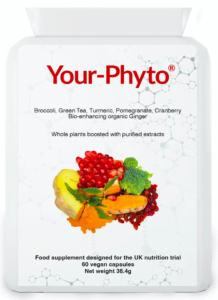 There are many hurdles to overcome in order to loose weight including genetic susceptibility, menopause, medication, lack of time to cook healthy meals or exercise, stress and comfort eating. This is a shame because being overweight is linked to a host of medical conditions from diabetes to cancer.. read more
There are many hurdles to overcome in order to loose weight including genetic susceptibility, menopause, medication, lack of time to cook healthy meals or exercise, stress and comfort eating. This is a shame because being overweight is linked to a host of medical conditions from diabetes to cancer.. read more
Various diets and exercise regimens can help reduce calorie intake and increase energy expenditure (read more). Unfortunately, just looking at the calorie in-out ratio tends to fail, which is why 64% of the UK population remain either over weight (BMI >25 kg/m2) or obese (BMI > 30Kg/m2).
For long term weight management more permanent and imaginative dietary strategies are required. In particular, exploring the role for increasing phytochemical intake. Phytochemicals are natural compounds found in plants. They have been shown to have various health benefits, including potential roles in weight management. Here are some ways in which phytochemicals may play a role:
Appetite regulation: Some phytochemicals, such as catechins found in green tea and capsaicin in chili peppers, have been shown to help suppress appetite and increase satiety. By reducing feelings of hunger, these compounds may indirectly support weight management by reducing calorie intake [Tucci]
Thermogenesis: Certain phytochemicals, like gingerol in ginger and capsaicin, found in spicy foods like chili peppers have thermogenic properties. They can slightly increase the body’s metabolic rate and energy expenditure, which may contribute to weight management efforts [Ojewole].
Fat metabolism: Phytochemicals such as epigallocatechin gallate (EGCG) in green tea extracts, resveratrol and curcumin, have been studied for their potential to influence lipid metabolism. They have been shown to directly interact with adipose tissues (preadipocytes, adipose stem cells, and immune cells) reducing their propensity to store energy [Kim].
Blood sugar control: Flavonoids, a type of phytochemical found in berries such as cranberries and vegetables such as broccoli, have been associated with improved blood sugar control. By helping to regulate blood glucose levels, these compounds may indirectly support weight management, as stable blood sugar levels can reduce cravings and prevent overeating [Johnson, Kim].
Anti-inflammatory effects: Chronic inflammation is often associated with obesity and metabolic disorders. Some phytochemicals, such as polyphenols found in fruits, vegetables, and spices, possess anti-inflammatory properties. By reducing inflammation, these compounds may contribute to overall health, less joint pains so facilitate great physical activity [Kim, Thompson].
Helping gut health: Some phytochemicals act as prebiotics which promote a healthy gut health microbiome, in particular ellagitannin found in tea as well as the phytochemicals in pomegranate and turmeric [Marotz].. The influence of gut health on weight has gained scientific credibility as it has been observed that greater weight is linked to overgrowth of the more inflammatory (bad) bacteria [Yin]. Poor gut health effects digestion and absorption food and has several consequences for weight gain:
- Increases inflammation so the body enters a defence mode, storing more energy >>
- Reduces joint health so exercise is more uncomfortably >>
- Effects sleep causing fatigued in the day reducing motivation to diet and exercise >>
- Increases hunger hormones encouraging us to eat more >>
- Interferes with oestrogen levels, menopausal symptoms and weight gain >>
How to increase daily phytochemical intake
 Asian and Mediterranean diets are typically abundant in phytochemical-rich fruits, mushrooms, vegetables, salads, herbs, spices, teas, nuts, berries, seeds and legumes. Typical western diets, on the other hand, are often deficient in phytochemicals. Ideally, we need to eat a lot more of them, preferably some with every meal of the day. A lot of emphasis is placed on exotic, rare fruits (superfoods) but they are easily available in the average supermarket in the UK.
Asian and Mediterranean diets are typically abundant in phytochemical-rich fruits, mushrooms, vegetables, salads, herbs, spices, teas, nuts, berries, seeds and legumes. Typical western diets, on the other hand, are often deficient in phytochemicals. Ideally, we need to eat a lot more of them, preferably some with every meal of the day. A lot of emphasis is placed on exotic, rare fruits (superfoods) but they are easily available in the average supermarket in the UK.  Less obvious sources include dark chocolate, chilli, red wine, coffee and tea so you don’t have to have a boring diet to enjoy them. Here are some healthy receipts which include tasty phytochemical rich foods.
Less obvious sources include dark chocolate, chilli, red wine, coffee and tea so you don’t have to have a boring diet to enjoy them. Here are some healthy receipts which include tasty phytochemical rich foods.
In addition to whole meals, there are many other practical ways to boost phytochemical intake on a daily basis such liquidising vegetables, shots, soups and eating sprouting pulses (read more). A well made and researched nutritional supplement will help increase phytochemical intake without taking extra calories:
Role for phytochemical rich supplements
 In the busy world we live in, it’s is often difficult to prepare foods with enough phytochemicals on a daily basis. A well made supplement, is a convenient way to increase intake and spread intake across the day. The problem is, the quality of over the counter supplements can be very variable and most have not been evaluated in robust medical trials.
In the busy world we live in, it’s is often difficult to prepare foods with enough phytochemicals on a daily basis. A well made supplement, is a convenient way to increase intake and spread intake across the day. The problem is, the quality of over the counter supplements can be very variable and most have not been evaluated in robust medical trials.
The notable exception is YourPhyto which was designed to provide a safe and evidence-based way of increasing healthy plant phytochemical from the start of every day.
It is the only supplement which harnesses the benefits both whole foods and targeted extracts from the same plant. This ensures both a broad range of phytochemicals from the whole plant as well as boosting, measurable intake of specific candidate phytochemicals which are most likely to confer the health benefits.
It was developed by the scientific committee of the latest national intervention study following scrutiny of the most robust clinical studies both from the UK and internationally. Because it was made for a nationally approved clinical study it has a level of quality assurance unprecedented in the supplement world: Yourphyto contains only pure plants, all of which have been evualuated in weight reduction programmes:
- Broccoli: Whole dried florets
- Turmeric: Whole dried Turmeric
- Turmeric extract: providing extra pure Curcuminoids
- Pomegranate: Whole dried skin, pulp and seeds
- Pomegranate extract: providing more phytochemical especially Ellagic Acid
- Green tea extract: providing polyphenols including EGCG
- Cranberry purified extract: providing polyphenols including quercetin and flavonols
- Ginger: Whole organic bio-enhancing root enhancing absorption and bioavailability [Bode, Qazi]
In conclusion:
There is good evidence that phytochemicals can significantly help with weight management via multiple pathways. Their higher intake also helps mitigate some of the negative metabolic consequences of obesity such as diabetes, poor gut health and arthritis [Shouten, Felson, Esfahani, Wang]. Weight reduction programmes should also promote high phytochemical intake in adition to calories restriction and exercise. If considering a nutritional supplement to help increase phytochemical intake, yourphyto is a sensible choice based on the profile of whole foods and extracts.
References
Thomson M et al. The use of ginger as an anti-inflammatory and antithrombotic agent. Prostaglandins Leukotrienes and Essential Fatty Acids. 2002;67(6):475–8. [PubMed]
Ojewole J et al Analgesic, antiinflammatory and hypoglycaemic effects of Ginger. Phytotherapy Research. 2006;20(9):764–772. [PubMed]
Kim JK, Kim Y, Na KM, Surh YJ, Kim TY. [6]-gingerol prevents UVB-induced ROS production and COX-2 expression in vitro and in vivo . Free Radical Research. 2007;41(5):603–614. [PubMed] [Google Scholar]
Bode AM, Dong Z. The Amazing and Mighty Ginger. In: Benzie IFF, Wachtel-Galor S, editors. Herbal Medicine: Biomolecular and Clinical Aspects. 2nd edition. Boca Raton (FL): CRC Press/Taylor & Francis; 2011. Chapter 7.Available from: https://www.ncbi.nlm.nih.gov/books/NBK92775/
Qazi GN, Bedi KL, Johri RK, et al. Bioavailability enhancing activity of Zingiber officinale and its extracts/fractions thereof. United States Patent Number, US2003/0170326A1, 2003.
Dudhatra G et al A Comprehensive Review on Pharmacotherapeutics of Herbal Bioenhancers ScientificWorldJournal. 2012; 2012: 637953. doi: 10.1100/2012/637953
Johnston K, Sharp P, Clifford M et al. (2005) Dietary phytochemical decrease glucose uptake by human intestinal Caco-2 cells. FEBS Letters579: 1653-7.
Kim Y, Keogh JB & Clifton PM (2016) Polyphenols and glycemic control. Nutrients. doi:10.3390/nu8010017
Tucci SA. Phytochemicals in the Control of Human Appetite and Body Weight. Pharmaceuticals (Basel). 2010 Mar 22;3(3):748-763. doi: 10.3390/ph3030748. PMID: 27713277; PMCID: PMC4033978.
Yin R, Kuo HC, Hudlikar R, Sargsyan D, Li S, Wang L, Wu R, Kong AN. Gut microbiota, dietary phytochemicals and benefits to human health. Curr Pharmacol Rep. 2019;5:332-344. doi: 10.1007/s40495-019-00196-3. Epub 2019 Aug 19. PMID: 33224717; PMCID: PMC7678755.
Kim, Eunkyeong, and Sookyoung Jeon. 2023. “The Impact of Phytochemicals in Obesity-Related Metabolic Diseases: Focus on Ceramide Metabolism” Nutrients 15, no. 3: 703. https://doi.org/10.3390/nu15030703

